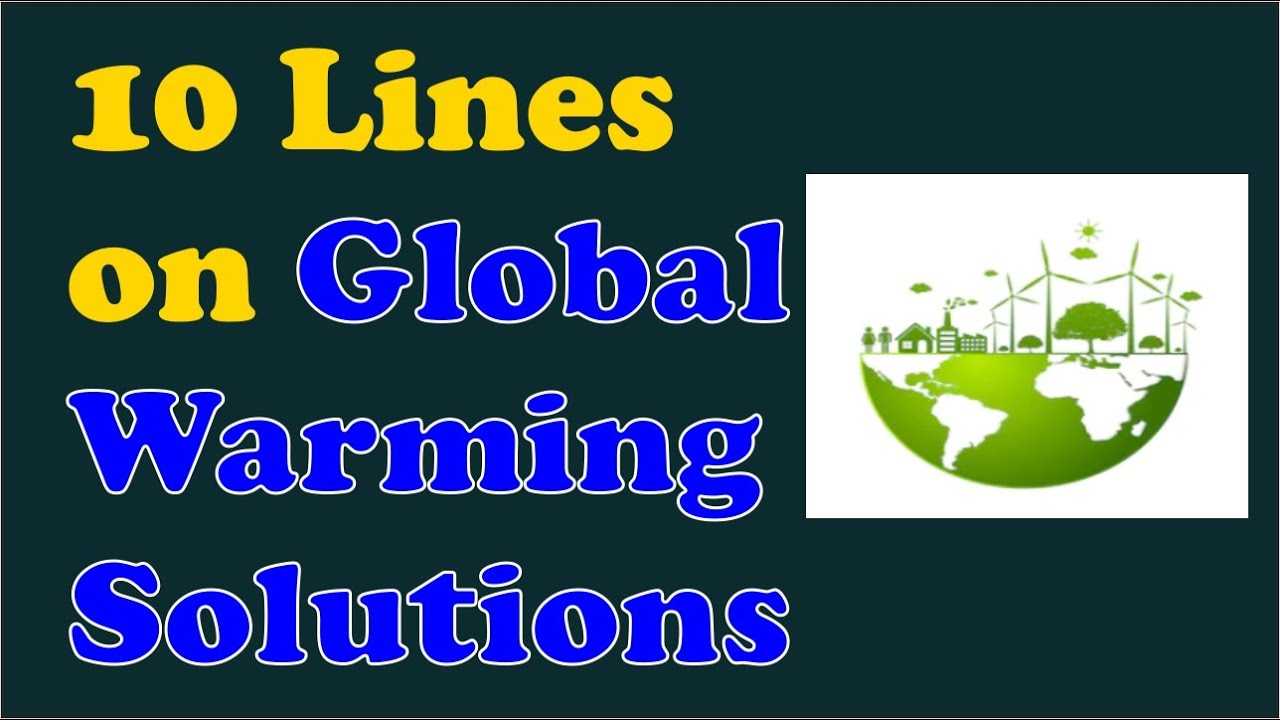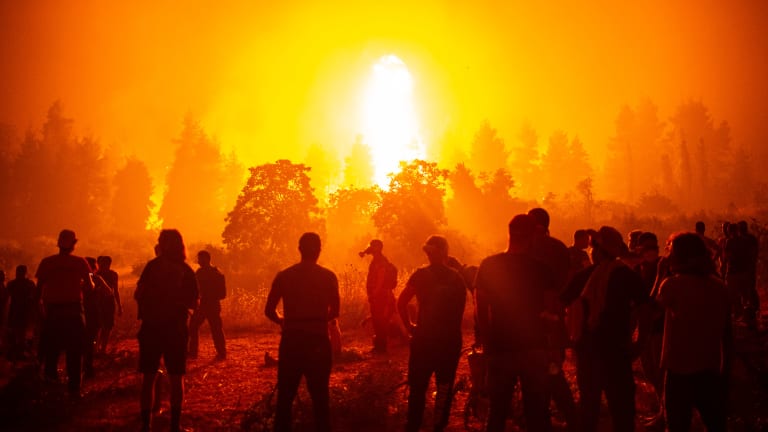
The United Nations' ActNow campaign is an international call to individuals to take action on climate change. It works with cities and communities to encourage individual behaviour change. This network includes experts and thought leaders from both national and local climate and sustainability.
ActNow brings together mayors around the globe. They collaborate to create best-practice projects. They work together to promote community safety, transform abandoned minelands into sustainable assets, expand technology businesses, and encourage community safety. They support People's Commissions which are groups of ordinary residents.

ACT NOW provides resources to communities working to make their area a healthier, safer place for all. ActNow promotes personal behavioural change through highlighting the importance sustainability in every day decisions. ActNow created a chatbot, which helps users find energy-saving strategies. It recommends traveling sustainably, eating plant-based meals, and conserving resources.
ActNow offers a youth version called Climate Action Superheroes. It is geared towards children. During this event, kids and parents participated in activities designed to educate them about environmental issues. The online seminar on wildlife preservation was a highlight. This activity was attended by hundreds of people from around the globe. Paavani was a 14-year old Youth Secretary for World Sustainable Security Coalition. DevikaVaid, Miss Earth India, and Naja Said, a Lebanese designer of fashion, used unused textiles to create zero-waste fashion were also among the guests.
Another ActNow project aims to provide low-cost capital for small businesses. The Alliance for Economic Development of Southern West Virginia, which received an initial grant from U.S. Economic Development Administration(EDA), will train green building workers with a grant of $2,500. In addition to this, the HBIZ Technology Center will upgrade three historic buildings to become tech-reuse facilities.
Appalachian Climate Technologies Coalition focuses on the creation of green collar tech jobs in southern West Virginia. It will promote an inclusive economy and make it possible for the region to transition to a more sustainable and prosperous future. As a result, ACT Now will leverage over $250 million in private investment in climate technology sectors. In the end, the coalition will create 5,000 jobs full-time and 15,000 jobs indirectly.

The ACT NOW programme works with local business leaders and nonprofits. It develops a network and experts that are capable of making effective, real change. It also selects promising ideas. ACT NOW also works to empower local politicians to make their communities more sustainable. ACT NOW's leadership training programme features a network of young people and experts from civil societies.
ACT NOW provides practical learning opportunities that can be used to assist people and communities in tackling the problems of today. They offer virtual dementia tours and caregiving seminars. ActNow reached millions of people worldwide through these initiatives.
ActNow is essential to the UN coordinated effort in climate change. It is a key part of the UN coordinated effort on climate change. ActNow has been welcomed by chefs and influential people who want to help people live sustainably.
FAQ
How does climate change politics impact global efforts?
Climate change is a controversial issue that has caused a lot of division between nations, governments and individuals. Politicians of many actors influence the implementation of actions to address climate change. It has become difficult to find consensus on global efforts to tackle this pressing environmental crisis.
The overwhelming majority of scientists agree with the fact that human-generated global warming is real. It is urgent for action to address it. Politics surrounding these issues can often hinder global cooperation, which is required to make effective progress in implementing sustainability energy practices and upholding regulations protecting natural environments, researching viable technological options, and other climate-change interventions.
In particular, various governments around the world are keen to protect their economic interests and enforce measures that would limit business activities as little as possible; this frequently conflicts with the regulations that experts recommend for addressing climate change in an efficient manner. Without strong commitments from all participating countries and wide-scale international action, it becomes very difficult for any single state or group of states to adequately address climate change through legislation or otherwise.
The difficulty of reaching a full consensus about the best way to combat climate change is further complicated by differences in power dynamics. Countries with more economic power may appoint themselves to be represented on international bodies for negotiations about the environment. This can lead the to divisive discussions between the countries' interests and the collective interest. A number of potential side effects that could be caused by radical changes like geoengineering were also discussed at national and international levels.
The grassroots movements also have struggled against powerful enemies, such as corporate ownerships and well funded lobbyists who want to maintain politically favorable positions in their industries. This includes funding research into alternative forms energy production and enforcing renewable technology mandates. It is important that individual governments are clear about the possible rewards and outcomes if they intend to actively pursue valid progress on this matter and not seek public favor through short-term gains and spectacles.
Properly distributing resources allocated towards any intervention program while being mindful of political divisions between nations will be critical if any coordinated effort aimed at mitigating our current environmental crisis is going successfully to come to fruition.
What is the role of the energy sector in climate change and how can it be addressed?
It is crucial that the energy sector plays a significant role in climate change. Global warming is caused by the release of carbon dioxide into the atmosphere. This traps heat and causes an increase in Earth's average temperature.
To address this, energy sources must move away from carbon-emitting sources, such as coal and natural gas, and instead transition towards renewable energy sources like solar, wind, and geothermal. This transition can be made through both government policy and incentives, as well as investments in innovative technology like hydrogen fuel cell. By investing in infrastructure that supports the use of these renewable sources, businesses and households can drive down emissions while simultaneously reducing their electricity bills.
Other options include switching away from petroleum-fueled cars, moving towards electric vehicles, and public transport. Governments have the power to encourage and support investment in cleaner modes for transportation.
Additionally, companies must implement green business practices within their operations to reduce overall carbon footprints by implementing better insulation systems for offices or implementing energy efficiency plans for production facilities. This can reduce operational costs dramatically while improving environmental performance metrics.
These initiatives must not only be supported at the company level, but also at the federal level to be truly successful. Taxing pollution products increases individuals' willingness to adopt healthier practices. But this won't force them to compete with polluters. Instead, vouchers or subsidies for low carbon products will create a continuous market to support sustainability. This is why tackling climate changes requires both private industry as well as private citizens to make a difference. By switching to green energy and adopting environmentally friendly practices, we can help to ensure that the future generations of people are affected positively.
What is the current state of the global climate and how is it changing?
The current global climate state is one of unprecedented change and uncertainty. Temperatures are rising rapidly due to unprecedented levels of atmospheric carbon dioxide. This is causing heat waves, droughts, changes in rainfall patterns, melting of polar ice caps and ocean acidification as well as an increase in sea level.
These changes are already having a profound impact on ecosystems around the world, causing extinctions and disruption of habitats. They are also threatening the lives and livelihoods of billions of people, particularly those in areas already facing resource scarcity and poverty.
Because of the increase in average surface temperatures from human activity, the number of extreme weather phenomena such as hurricanes and cyclones has been increasing steadily over time. This trend is expected to continue into the future as temperatures continue to climb.
Global climate change is causing many problems. These include rising food insecurity, displacement due to extreme weather events and sea level rise that force communities to move. Climate change is also causing social inequalities, bydisproportionately affecting marginalized groups that lack the knowledge or resources to adapt effectively.
While progress has been made in some countries in terms of reducing carbon emission or developing renewable energy programs, there has yet to be any meaningful action taken at a global scale that would allow us to address these issues effectively. In order for us to prevent further disruption and devastation from climate change all nations must come together and take urgent action now while at the same time planning for adaptation in an increasingly uncertain world.
Statistics
- The 100 least-emitting countries generate 3 per cent of total emissions. (un.org)
- features Earth's average surface temperature in 2022 tied with 2015 as the fifth warmest on record, according to an analysis by NASA. (climate.nasa.gov)
- According to the 2014 report on Climate Change Impacts, Adaptation, and Vulnerability (page 8) from the United Nations Intergovernmental Panel on Climate Change, governments at various levels are also getting better at adaptation. (climate.nasa.gov)
- The 10 countries with the largest emissions contribute 68 percent. (un.org)
- Fossil fuel production must decline by roughly 6 percent per year between 2020 and 2030. (un.org)
External Links
How To
How to incorporate sustainable practices into your daily life to combat climate change
It is possible to integrate sustainable practices into every day life by reducing the amount of resources you consume, such as food and energy. Instead of buying new items every day or week, try shopping secondhand or borrowing items from friends and family members. A vegetarian diet once or twice a month can help to reduce the amount of methane that is released into the atmosphere by reducing livestock production. Finally, whenever possible, turn off the lights when leaving a room to conserve energy.
The other way to combat climate changes is to reduce carbon emissions from transportation such as cars and aircrafts. You can also choose renewable power sources like solar panels to replace traditional fossil fuels and generate electricity at your home. To make climate change action effective, it is important to support policies that promote clean air regulations. It is also a great idea to engage with others about issues like plastic pollution and forest destruction. This creates more informed citizens who will take action!